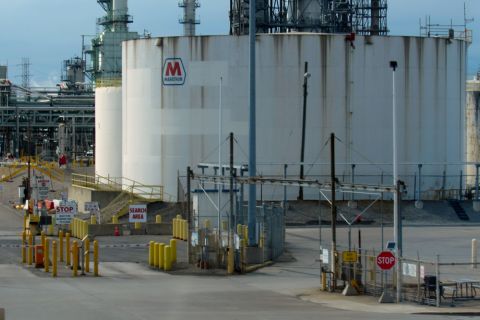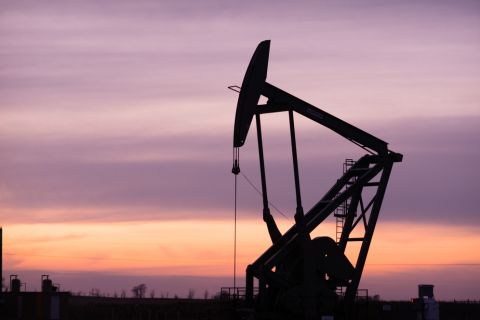The fear of another Deepwater Horizon accident in the Gulf of Mexico has created a rather interesting dichotomy offshore Cuba between wanting to maintain the Cuban embargo and responding to a blowout in Cuban waters. What started the fuss is an announcement by the Cuban government that Repsol would be drilling a well off the north coast of the island country. A few years ago, that would have rattled the politicians in Washington more than anyone else. But, since the Macondo oil spill, the stakes have gotten higher. The well would be drilled just 50 miles from Florida in some of the prime sport fishing areas in the Gulf of Mexico. Cleaning the beaches of Florida from a major oil spill in foreign waters would create major political, environmental, financial and sovereignty problems for the U.S. U.S. Rep. Vern Buchanan (R-Fla) is one of the leading opponents to the drilling operations. “The bigger problem is that Cuba, using Chinese-made equipment, wants to drill a well even deeper than BP’s Deepwater Horizon that exploded last year in the Gulf of Mexico. Cuba has neither the resources nor the technology to handle a spill, and help from American companies would be greatly complicated by the trade embargo. “It would only take three days for a spill to reach our beaches. And if disaster strikes, who pays the price? Not Cuba or China – but America. The economic and environmental damage would be catastrophic. We cannot allow this project to move forward,” he emphasized. “Last week, I introduced legislation (HR-372) aimed at blocking Cuba from drilling so close to our shores. Obviously, we can't tell Cuba what to do since we don't have diplomatic relations with that country. So my legislation would attack the problem by allowing the U.S. Interior secretary to deny American oil permits to any company that does business with an embargoed nation like Cuba. “A Spanish firm, Repsol, is now working with Cuba and hopes to begin drilling later this year. Repsol also has 20 drilling permits awaiting approval for projects in the Gulf of Mexico. My bill essentially tells Repsol to decide whether it wants to continue doing business with Cuba or with the United States,” he stated. Other Florida legislators are proposing bills that would deny visas to executives of companies that are drilling offshore Cuba, impose export sanctions against those companies and provide other penalties for companies involved in operations offshore Cuba. The rhetoric is getting louder. Repsol has contracted the Scarabeo 9 semisubmersible rig to drill the well in 5,600 ft of water. This will be the first well drilled by the Saipem-owned rig, which was built in a Chinese yard and completed in Singapore. The rig is expected to begin drilling in January 2012. When it comes to a state-of-the-art rig, this one would be hard to beat. However, as environmentalists and industry experts have both noted, Cuba is way behind the times when it comes to offshore oil spill technology. And, U.S. companies can’t sell the newer equipment to them because of the decades-old trade embargo. Michael Bromwich, director, Bureau of Safety and Environmental Enforcement, is spending a lot of time on Capitol Hill assuring U.S. senators and representatives that the federal government is developing a contingency plan to allow domestic companies to respond to a Cuban oil spill. Before entering Cuban waters, Repsol is going to allow U.S. inspectors onboard the drilling rig when it arrives in Trinidad and Tobago. That may not be enough to soothe the frayed nerves of legislators. It does point to how much a single offshore accident can flavor the national dialogue. Would the U.S. Navy have to escort relief vessels into Cuban waters or would the Cuban government allow U.S. assistance in the event of a major oil spill? Would such an event be the opening salvo in ending or altering the Cuban trade embargo? Whatever plays out in this drilling operation, we are hoping that the well is drilled safely with no oil spills. That will do more to ease the fears than anything else. The world has changed a lot since the Ixtoc-1 well blew out offshore Mexico in 1979. Oil from that spill came ashore on South Padre Island. At that time, Bill Clements was governor of Texas. He was also the founder of SEDCO, the company that owned the rig that was drilling the Ixtoc-1. When examining the oil and tar balls washed onto South Padre Island, he basically said that all that was needed was a good hurricane to clean the beaches. That sentiment definitely would not float today.
Recommended Reading
Thanks to New Technologies Group, CNX Records 16th Consecutive Quarter of FCF
2024-01-26 - Despite exiting Adams Fork Project, CNX Resources expects 2024 to yield even greater cash flow.
Cheniere Energy Declares Quarterly Cash Dividend, Distribution
2024-01-26 - Cheniere’s quarterly cash dividend is payable on Feb. 23 to shareholders of record by Feb. 6.
Marathon Petroleum Sets 2024 Capex at $1.25 Billion
2024-01-30 - Marathon Petroleum Corp. eyes standalone capex at $1.25 billion in 2024, down 10% compared to $1.4 billion in 2023 as it focuses on cost reduction and margin enhancement projects.
Humble Midstream II, Quantum Capital Form Partnership for Infrastructure Projects
2024-01-30 - Humble Midstream II Partners and Quantum Capital Group’s partnership will promote a focus on energy transition infrastructure.
Hess Corp. Boosts Bakken Output, Drilling Ahead of Chevron Merger
2024-01-31 - Hess Corp. increased its drilling activity and output from the Bakken play of North Dakota during the fourth quarter, the E&P reported in its latest earnings.





